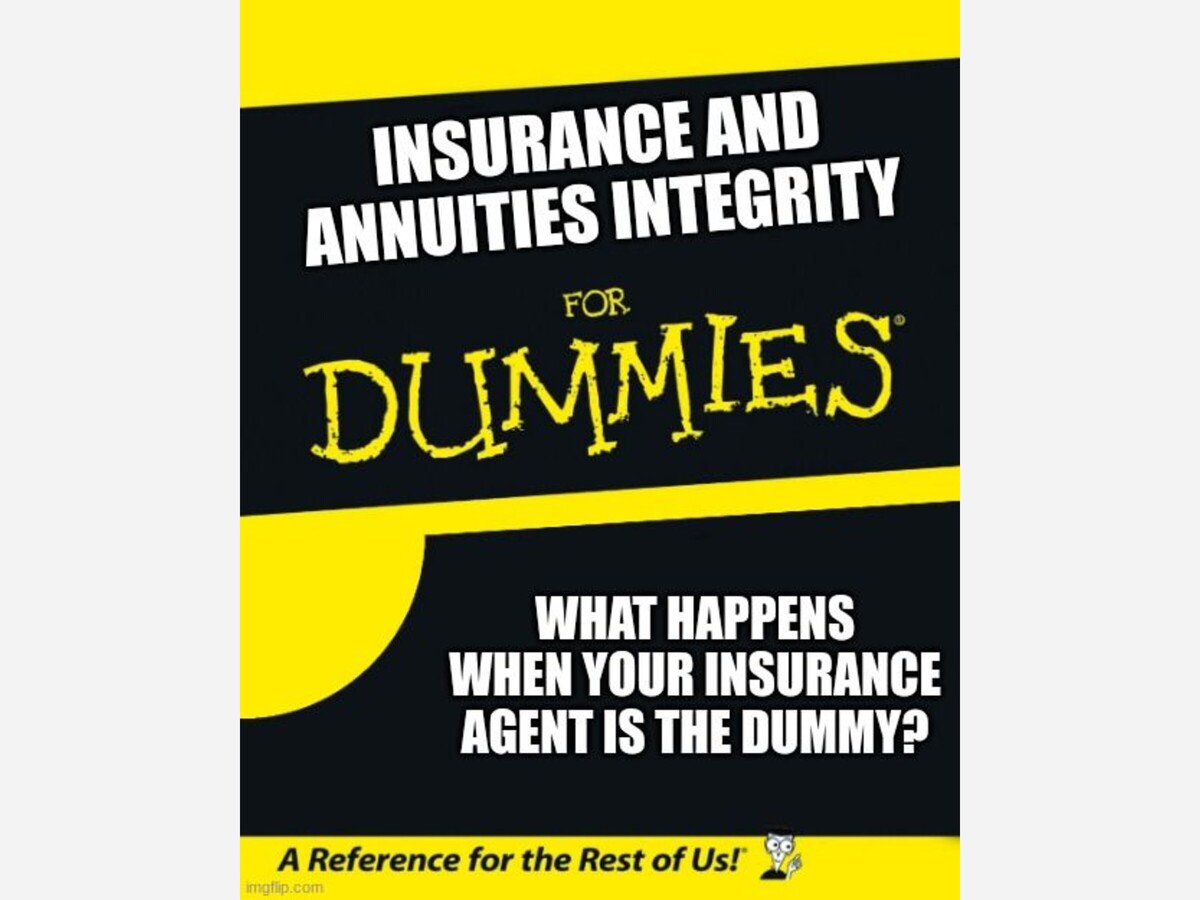Image

Unveiling the Dark Secrets of the Insurance Industry: Unscrupulous Agents, Licensing Test Struggles, Commission Laddering, and the Menace of Churn and Twisting

Editorial note : The author of this article, David Happe, is a licensed independent insurance agent and fiduciary. Dave got a 95% passing score on the Florida annuities and insurance license. As a fiduciary, he doesn't consider himself part of the insurance industry, but an outsider who uses the insurance and annuities industry to protect his client families.
Beneath the façade of the insurance industry's promise of protection lies a web of dark secrets. Unscrupulous agents, licensing test struggles, commission laddering resembling MLM tactics, and the ominous practices of churn and twisting have created a toxic underbelly within the insurance sector. In this exposé, we pull back the curtain to reveal the unsettling realities that tarnish the reputation of an industry that, for some, has become a recruiting mill of underqualified agents.
Among the dedicated insurance professionals, a subset operates with a different agenda - putting personal gains above the interests of their clients. Misleading information, deceptive sales tactics, and the sale of unnecessary policies are tools of the trade for these rogue agents. Such practices not only harm consumers but also contribute to the industry's erosion of trust. You find this most often in two sectors
2. Agents Repeatedly Taking Licensing Tests:
The necessity for agents to be licensed is fundamental to ensure competence in navigating the complexities of insurance. However, a concerning trend has emerged where some agents struggle to pass the licensing test on their first attempt, or second, or third. Passing is a low bar to begin with, as only 70% is required to pass. In college, this grade equivelant would be one point from a D. Many agents take the test multiple times to struggle to pass this low bar. Do you want someone managing the safety and long term investment strategy for your family that had to take the competency test several times to achieve a 70% passing score? In my opinion, mastery of the material should be required. You may be terrified to learn that in Florida, the bar exam to become an attorney has a similar 70% threshold. No wonder there are so many insurance agents and attorneys. This struggle, often overlooked, sheds light on the recruitment mill nature of the industry, emphasizing quantity over quality. Most insurance agents nationally fail the test the first time. It's a tough test, but we prefer to work with people who demonstrate mastery when we're talking about insurance and annuities. Ask your advisor how many times they took the licensing test, and what their score was.
3. Commission Laddering: The MLM Approach
The insurance industry, in some instances, has adopted a commission laddering approach reminiscent of multi-level marketing (MLM) structures. Agents are pushed to recruit more underqualified individuals into the industry, creating a hierarchy where commissions trickle up. This not only compromises the quality of service provided but also perpetuates a culture where recruitment numbers matter more than agent competency. Many of these insurance mills spend more time recruiting new fresh meat than they do spend time perfecting their client service. It shows. Insurance agents are referred to nationally as "producers" but if you were to look inside of some of the slimiest insurance agencies in your town, you might consider it more like speed dating at a singles bar than you would "producing" anything of value. No wonder people think of the insurance industry like they do the used car industry. In the lowest common denominator, the personnel and training might be the same between both industries.
4. Churn and Twisting:
Churn and twisting, coupled with the recruitment mill model, create a perfect storm for consumers. Unscrupulous agents, underqualified recruits, and the pressure to maximize commissions result in practices that harm both the financial well-being of policyholders and the overall credibility of the insurance industry.
Impact on Consumers:
The consequences of these dark practices are profound for consumers, who may find themselves underinsured or burdened with policies that serve the interests of the recruitment mill rather than their own. Struggles of agents to pass licensing tests underscore the urgency for reforms, questioning the industry's ability to maintain high standards in the face of a relentless pursuit of quantity over quality.
Regulatory Challenges:
Rebuilding trust in the insurance industry requires robust regulatory measures. Stricter penalties for unscrupulous practices, a thorough review of licensing procedures, and the dismantling of commission laddering practices are vital steps toward cleansing the industry of its toxic elements.
The insurance industry's dirty secrets, including unscrupulous agents, licensing test struggles, commission laddering akin to MLM structures, and the menacing practices of churn and twisting, demand urgent attention and reform. As consumers, regulators, and industry stakeholders, it is our collective responsibility to expose these practices, hold wrongdoers accountable, and reclaim an industry that should prioritize integrity and protection over recruitment numbers.
David Happe is a licensed independent fiduciary insurance and annuities agent in Florida.